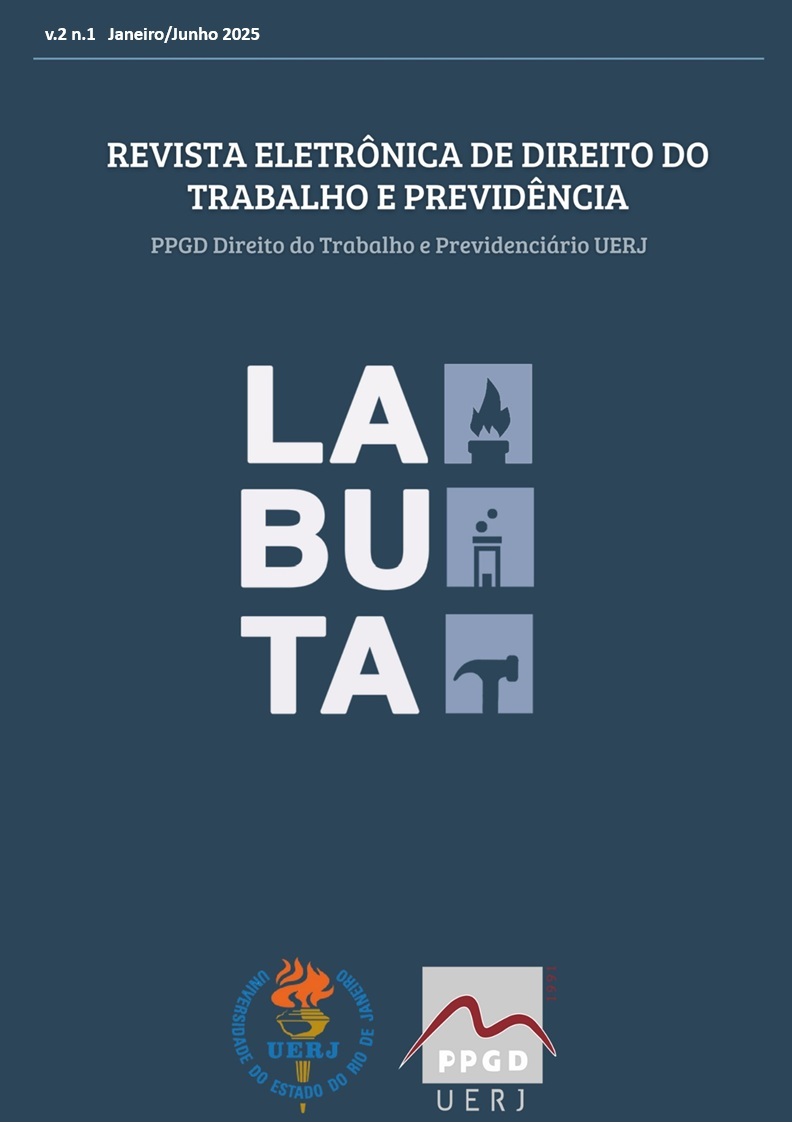A MATERIALIZAÇÃO DOS DIREITOS SOCIAIS DOS TRABALHADORES PELA PERSPECTIVA DO ACESSO À JUSTIÇA
UM OLHAR CRÍTICO SOBRE ALGUMAS DECISÕES DO SUPREMO TRIBUNAL FEDERAL
Resumo
O direito do trabalho, seja no aspecto material ou processual, tem como finalidade precípua a regulação e tutela das relações laborais, tendo como premissa a existência de desigualdade fática no interior de sua relação contratual. Em outras palavras, busca reequilibrar a crise que é da essência das relações de trabalho subordinado. Crise essa, da exploração capitalista do trabalho, que vem estendendo-se mais modernamente a ainda outras relações análogas. Nesse sentido, é curial perceber que esse ramo do Direito, em última análise, busca a preservação da dignidade humana através da figura do trabalhador, por via de materializar a tutela dos direitos sociais, que se manifestam por diversos aspectos distintos, entre eles nas relações laborais. A proteção à dignidade humana, à pessoa do trabalhador, nas suas mais diversas dimensões materiais, por imperativos civilizatórios, humanísticos ou mesmo naturais, impõe-se para além até mesmo das normas constitucionais, porquanto, no estágio civilizatório atual e na dimensão internacional dessa proteção, seria intolerável qualquer maltrato a esses elevados imperativos.
É importante destacar que a construção dessa estrutura protetiva possui etapas distintas, que vão desde a implementação pelo Estado de políticas públicas, que alcançam até mesmo a existência de efetiva fiscalização das referidas relações. Passa ainda pelo direcionamento contínuo de construções normativas, cumprindo ao legislador orientar seus esforços como meio de buscar o equilíbrio e harmonia na relação dicotômica entre capital e trabalho, sem nunca perder de vista que o trabalhador é a parte hipossuficiente nessa estrutura contratual. Verifica-se ainda caber ao Poder Judiciário o dever de nortear suas decisões tendo como alicerce toda a lógica protetiva que existe na configuração desse sistema protetivo, o que não significa supor a existência de parcialidade, mas a implementação de julgamentos que estejam amparados nessa dinâmica principiológica protetiva, sobretudo por existir determinação constitucional neste sentido.
Com base nessas premissas, pretende-se analisar, em vista da premissa do acesso à justiça como meio de efetividade dos direitos sociais, algumas decisões da Corte Constitucional brasileira, que denotam, com a devida vênia, um caminhar em sentido oposto à efetiva busca de efetividade dos direitos sociais. Seja na perspectiva individual ou coletiva, seja na própria apreciação da competência da competência da Justiça Laboral, especializada para enfrentar conflitos laborais. Percebe-se que desses entendimentos resulta uma gradativa imposição de limites para que o trabalhador possa, ao ter um direito violado, buscar algo que deveria ser singelo, o restabelecimento de sua dignidade ferida, através do alcance de seus direitos garantidos. Não se pode entender que configure um caminho de efetivação desses direitos a restrição de oportunidades de acesso à Justiça do Trabalho ou o direcionamento do trabalhador para outras vias processuais mais complexas e onerosas.



